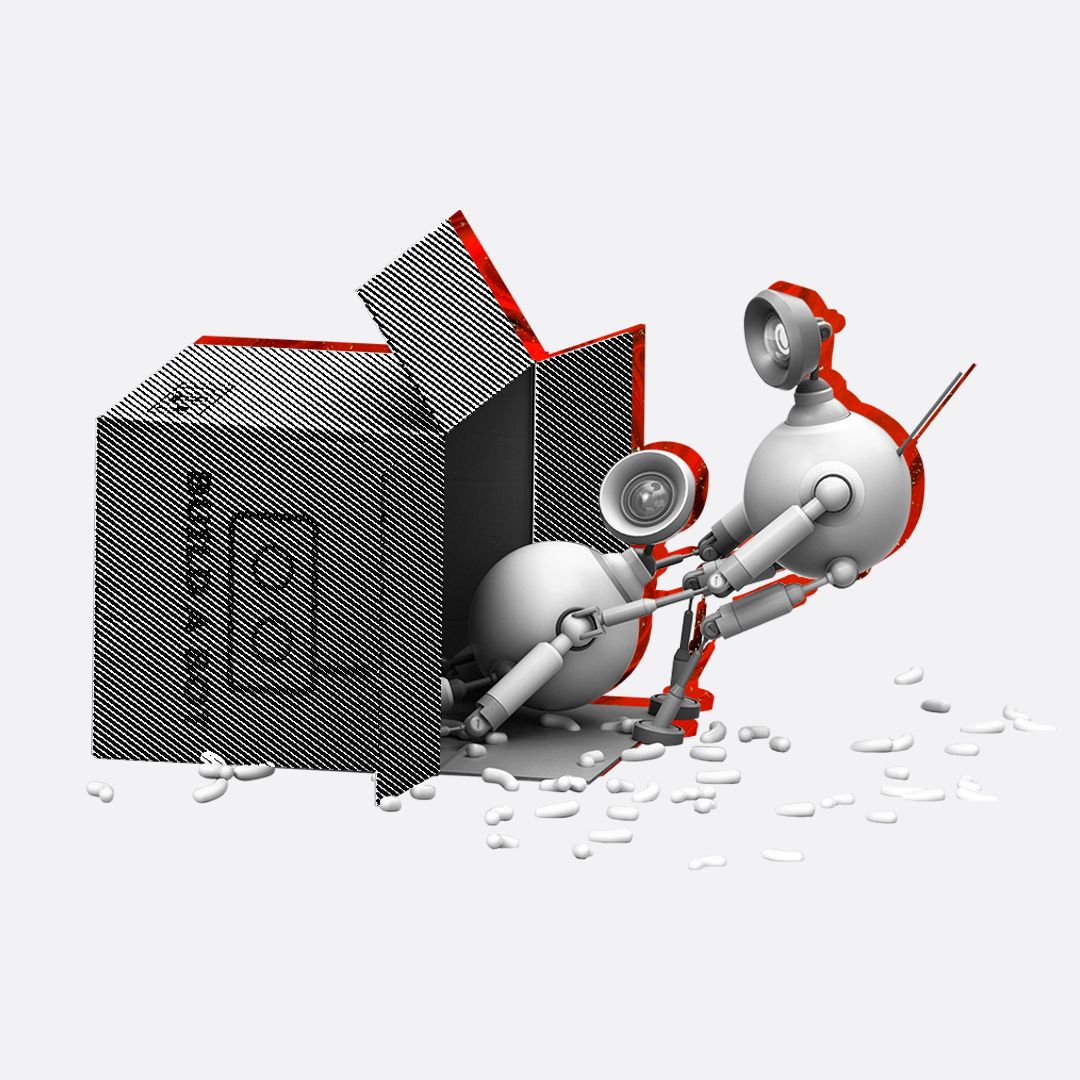If you have a small or medium-sized business, you sell standard goods according to the classic scheme and use the usual accounting and analytics systems — you are suitable for developing an online shop on a CMS.
For large-scale projects or small, but with unusual offers and business processes, it is better to choose a framework.
That's it, the question is closed, let's split up!
And if you are wondering why this is so, I invite you to go a little deeper into the topic.
What Is CMS and Framework, and Why Should I Even Choose One?
CMS is a content management system, a ready-made web application on the basis of which your website can be built. It is also called an engine, and it includes both an administrative panel for management and tools for creating a user interface, the part of the online shop that will be used by visitors.
All CMS are like a constructor of modules responsible for different functions. Some of them are so high level of abstraction that to work with them, you do not even need to know HTML, you do not need to know anything at all — subscribe and build a site yourself from ready-made templates. Others are more complicated, require experience in web development, but they are much more productive and give more room for customization for the specifics of the project. They already have everything for the start of sales and the ability to refine to add, for example, UK payment services or accounting. They are suitable for online shops.

Framework is also an engine, but much more complex. Here, in the form of "parts of the constructor" are sets of libraries for different programming languages, facilitating the development of the site from scratch. With the framework, your online shop will be unique entirely and completely. Even the administrative panel will be written specifically for your business, so that it was convenient to manage everything. And the client part can look any way you want. The main thing is that in any case behind the beautiful facade will be powerful tools for rendering graphics and animation, management and analytics, and many other things that are unavailable to projects on CMS. There are a lot of frameworks, by the way.
Consequently, you should choose something from them firstly, because the site in any case needs an engine. Secondly, because CMS and frameworks are better suited for different projects.
Let's be clear: What better solves the problems of your business, that is better!
There are beautiful, but "dead" sites on frameworks, which are not interesting to anyone, because they were originally created for whom it is unclear. There are online shops on self-written CMS, which are so many years old that users are used to the specific interface, and the link mass is so huge that Google shows them on high-frequency queries in the first three results. The new ones, of course, nobody does that, and the examples above are more of an exception to the rule. But they nevertheless confirm the axiom that the use of any CMS or framework here at all does not guarantee that the site will be in the top, and visitors are delighted.

To make it so, you need to optimize the online shop, fill with content, run advertising, and also constantly refine. The latter, of course, few people like, but the fact remains: first, "stuff" in the site all that you can not only long and expensive, but also not effective, because it is better to add only what you need to the target audience. Secondly, the coolest preliminary analytics is still preliminary, and to know exactly what your users will like, and what not, you can only after launching the project and testing it in practice.
But that's all lyrics, let's find out what is better for an online shop: CMS or Framework?
CMS: Features and Advantages
The best CMS for e-commerce that are distributed under a free licence are Magento, OpenCart and Drupal. They are created specifically for online shops. Everything you need to start selling is in the box, and everything a little less necessary can be downloaded from the company store, sometimes even for free, but more often for money, and you can connect it in almost two clicks. Or you can order the development of a module with the functions you need to integrate.
Website builders like WIX, Shopify, WordPress with WooCommerce plugin and others are not suitable for online shops with more than 50 products that want to move up in the search results. It's not that they can't be made functional and optimized, it's just difficult and unprofitable. Here, if you need a beautiful subscription shopfront with online payment option for a small local brand that you will promote in social networks, then safely choose a builder.
Now let's break down the good and not so good of CMS for e-commerce:
- Quick start and predictable results. The whole basis of the site is already made — take it to adapt and refine. This significantly speeds up the start and the whole development in general. Basic functions such as shopping basket or search engine are already in the CMS. Additional modules can be downloaded from the shop, and all trustworthy web development companies have ready-made solutions for all common problems. For example, connecting UK payment and delivery systems to your accounting systems. It follows that you will not only clearly name the terms and price of the development of the shop, literally immediately after discussing the wishes and drawing up the TOR, but also a minimal chance of force majeure.
- Templates. The reverse side of every advantage is a disadvantage of CMS. In the basic assembly may be something that you do not need and will only slow down the site. Possibilities of modifications are limited, and sometimes the function you need will be impossible to implement because of conflicts with the engine. Administrative panel is there, so you will have to learn it and use. If you do not spend enough time to customize the design, your site is sure to have the same "lazy" twin, and maybe a few hundred.

- User experience. What's perfect about templating is a predictable UX. The online shop will have a familiar user interface that your developers won't have to write from scratch. Predictability and clarity, that's what you need for online sales, so that the visitor is not scared and easily finds all the basic functions he needs. You can certainly customize the interface, change shapes, colours, fonts and even the location of blocks. But to make it so that, for example, the menu will pop out on the screen by clicking on the sun in the lower left corner — no. And this is good for 99.9% of projects.
- Security. On the one hand, if a vulnerability is found in the engine, your online shop can suffer from it, just like any other on this CMS. On the other hand, the security of a unique site on framework is only your headache. The community of developers from all over the world will fix problems in CMS in a couple of hours, and if someone will set a goal to hack your site (which will be difficult because of the non-template code), then you will have to fight it yourself.

- Update. With new versions of CMS and plugins, it is about the same story as with security. On the one hand, everything you use is updated automatically, and you may not even know. On the other hand, the developer of a plugin you bought and even more so a free downloaded plugin, may not have time to adapt it to the new version of the engine and, as a consequence, you will have problems. It's good if he didn't have time, but what if he never intends to do it at all? Fortunately, these are problems to more site builders, and there if you pay for an extended subscription, and you will be helped to solve problems. To avoid such problems with CMS for e-commerce, it is enough to order development from responsible companies that have written the modules themselves and monitor their relevance.
Framework: Features and Advantages
The most popular frameworks for e-commerce and not only - Symfony and Laravel. But if you want to use another — please, just find specialists, because framework is just a set of tools for working with the programming language. Framework in contrast to CMS depends on almost nothing, on any of these engines you can write anything with any functions you need. From this follows all their advantages and disadvantages:
- Performance and flexibility. Your online shop can be infinitely unusual and complex, but at the same time, its performance will in any case be higher than a simple CMS-based one. Simply because there will be nothing superfluous, and the architecture will be designed at once taking into account all the necessary functions. Simply put — no crutches.
- Scaling. You can improve the online shop on the framework endlessly and do it painlessly for the project. Just set a task to the developers and they write new functionality. Nothing will not break "suddenly" and will not work worse. All components of the site are yours alone - update and modify it whenever you want.
- Time and money. While CMS from the finished site is separated by configuration and customization, the framework need more time to turn into an online shop. And since every feature in it will be unique, you need more money. Add to this the enormous cost of testing to make everything work well together and on all devices and the fact that the services of the programmers themselves are many times higher, and then think again whether you need a framework. Does it sound scary? It's actually not that bad. If you come to a digital agency with a lot of experience, the developers will have ready-made solutions for classic online shop tasks on frameworks. For example, for the same administration panel or shopping cart. Re-using the code makes the difference in price and time is not so daunting any more. Overall. But for each unique feature, everything written above remains relevant. Be prepared.
Conclusion: So What to Choose, CMS or Framework?
To summarize.
Choose CMS if you have:
- small budget and/or tight deadlines;
- classic online shop — basic functions in CMS and its extensions are enough for the project.
You need framework if your online shop has:
- non-template business logic and unusual functions;
- a very large number of users and/or other significant load on the site;
- there is a need to scale the project freely.
Hope I have managed to explain that CMS is not only "simple and templated", and framework is not just "complex and unusual". Regardless, I recommend listening to the developers who will be doing your online shop. They are just as interested as you are in making the project turn out well in every sense, and know hundreds of nuances that influence which CMS or framework is better to solve your business problems.



